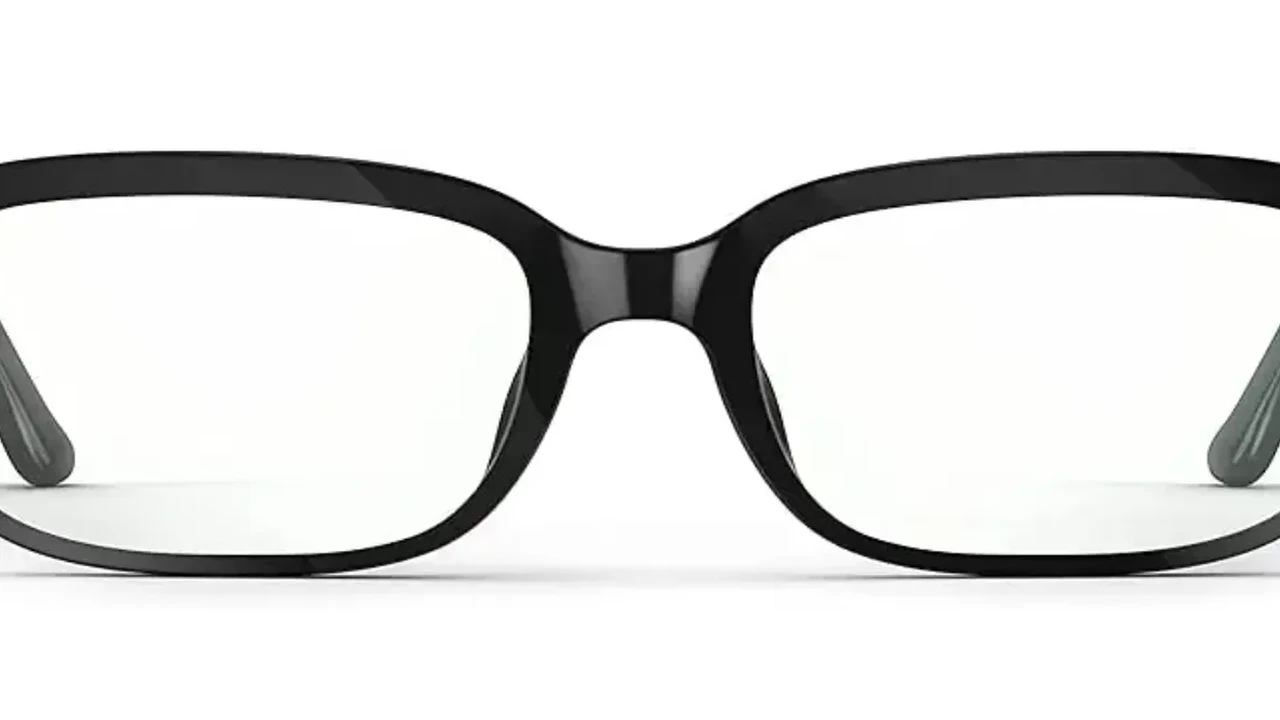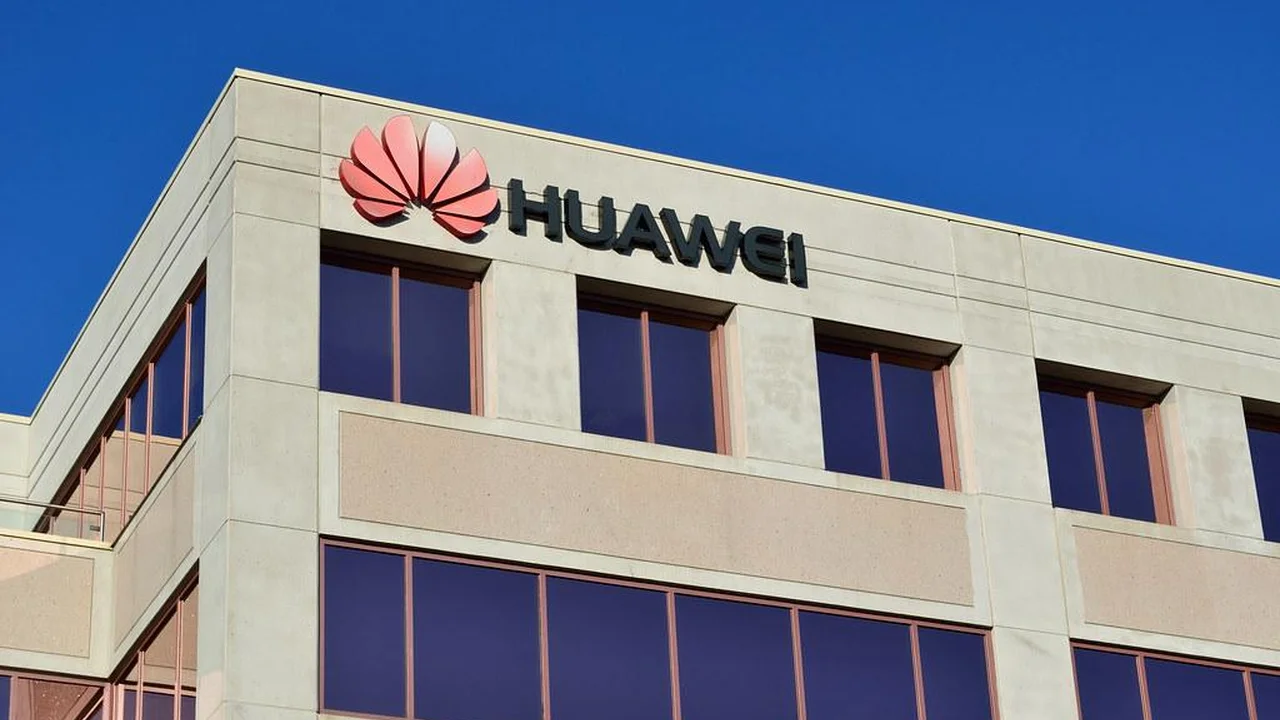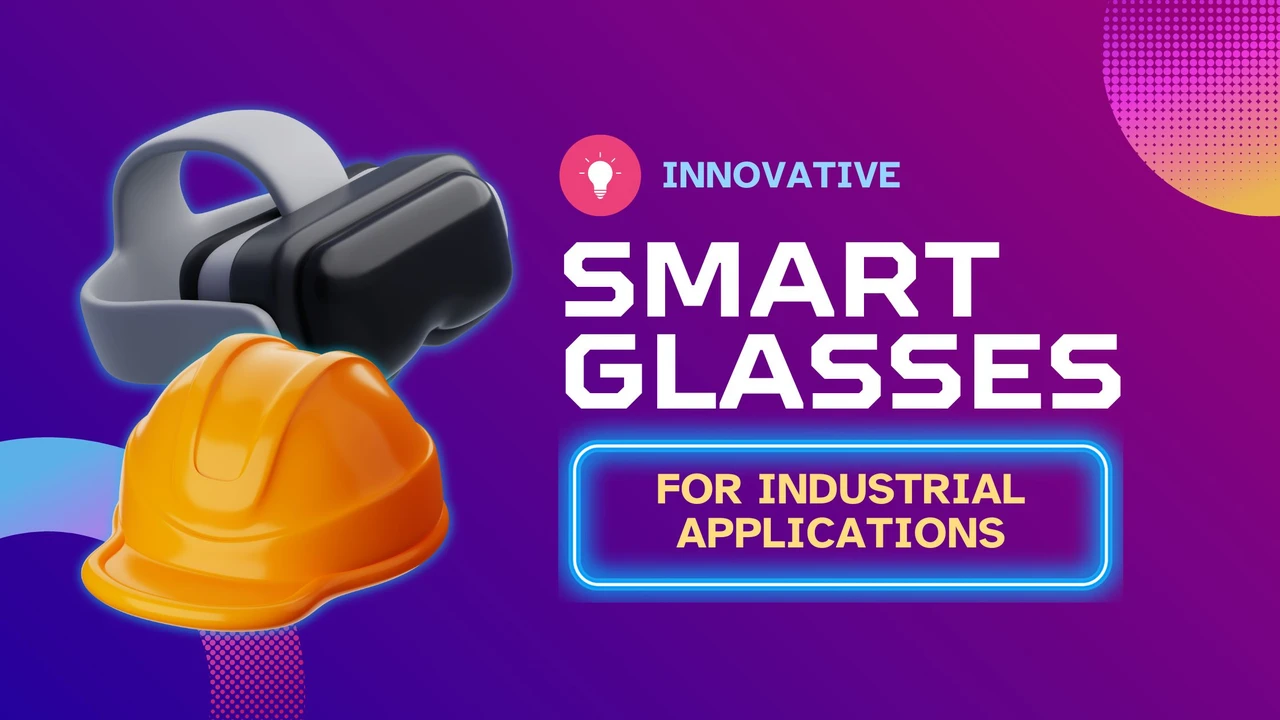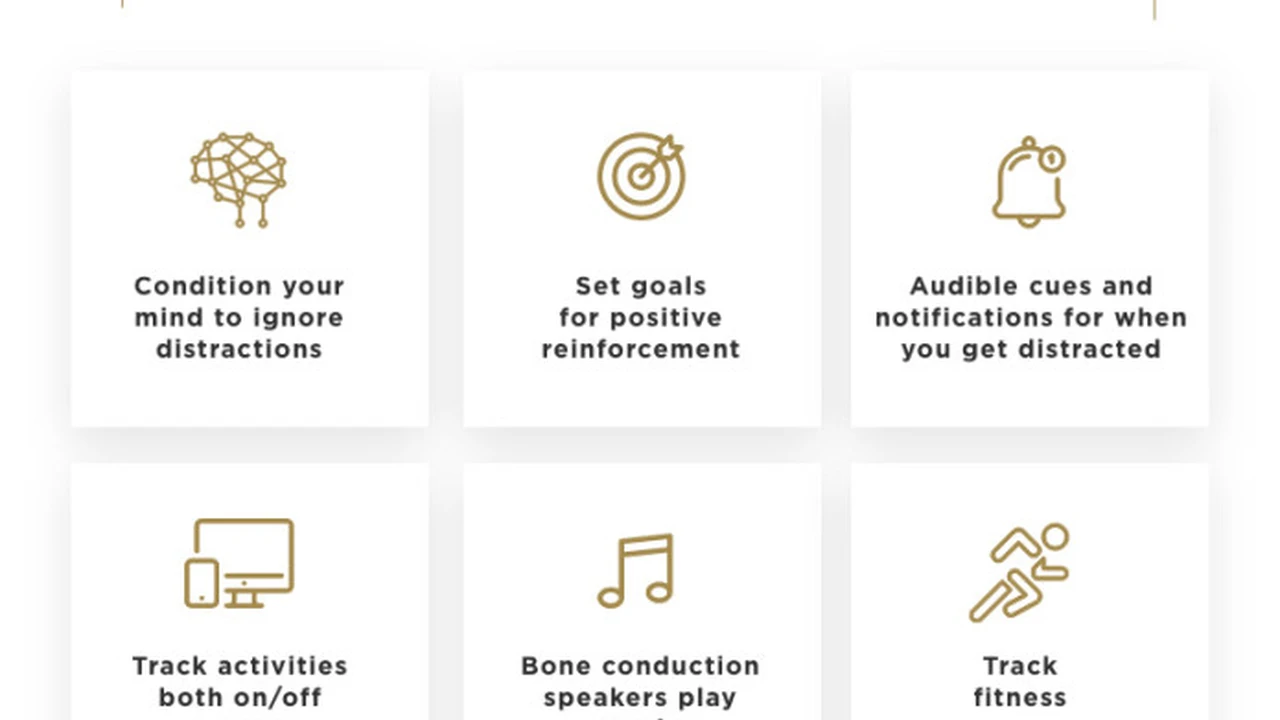Best Smart Glasses for Privacy Features Top 4
Prioritize your privacy with the top 4 smart glasses offering advanced privacy features and data protection.

Best Smart Glasses for Privacy Features Top 4
Understanding Smart Glasses Privacy Concerns and Data Protection
Hey there, smart glasses enthusiasts! We're living in an age where technology is getting closer to our eyes, literally. Smart glasses are becoming more common, offering incredible convenience and innovative features. But with great power comes great responsibility, especially when it comes to your personal privacy and data. Think about it: these devices sit right on your face, often equipped with cameras, microphones, and sensors that can capture a lot of information about your surroundings and even your biometric data. So, it's super important to consider privacy features when you're looking to buy a pair. We're talking about things like how your data is collected, stored, and shared, and what controls you have over it. Are the cameras always on? Can someone else access your recordings? These are valid questions, and we're here to help you navigate them.
The core of privacy in smart glasses revolves around transparency and control. You want to know exactly what your device is doing and have the power to decide what information it gathers and transmits. This includes everything from visual and audio recordings to location data and even health metrics if the glasses have those capabilities. Companies are increasingly aware of these concerns, and many are implementing features designed to give users more peace of mind. But not all smart glasses are created equal in this regard. Some prioritize sleek design or advanced functionality over robust privacy safeguards. That's why we're diving deep into the best options that put your privacy first.
Key Privacy Features to Look for in Smart Glasses
When you're on the hunt for smart glasses with strong privacy features, there are a few key things you should keep an eye out for. These aren't just nice-to-haves; they're essential for ensuring your digital footprint stays as small as you want it to be.
Camera and Microphone Indicators for Smart Glasses Privacy
First up, and perhaps most crucially, are clear indicators for when the camera or microphone is active. This might seem obvious, but you'd be surprised how many devices don't make it immediately apparent. Look for physical LED lights that illuminate when recording is in progress. Some smart glasses even have audible cues. This way, both you and those around you are aware that recording is happening. This is a huge step towards transparency and helps prevent accidental or unwanted recordings. For example, if you're in a public place, people might feel uncomfortable if they don't know whether they're being recorded. A clear indicator helps build trust and respect for privacy.
Data Encryption and Secure Storage for Smart Glasses
Next, consider data encryption. Any data collected by your smart glasses, whether it's photos, videos, or audio, should be encrypted both in transit (when it's being uploaded to a cloud service) and at rest (when it's stored on the device or in the cloud). This makes it much harder for unauthorized parties to access your sensitive information. Look for devices that explicitly state their encryption standards. Secure local storage is also a plus, meaning less data needs to be sent to the cloud, reducing potential exposure.
User Control Over Data Collection and Sharing in Smart Glasses
You should have granular control over what data your smart glasses collect and how it's shared. Can you easily turn off specific sensors? Can you opt out of data analytics? Are there clear settings to manage permissions for apps that access your camera or microphone? The more control you have, the better. This includes the ability to easily delete your data from both the device and any associated cloud services. Transparency in privacy policies is also key – make sure you can easily understand how your data is being used.
Privacy by Design Principles in Smart Glasses Development
Some companies are adopting a 'privacy by design' approach, meaning privacy considerations are built into the product from the very beginning, not just as an afterthought. This often translates to features like anonymized data collection by default, minimal data retention, and strong security protocols integrated into the hardware and software. While it might be harder to spot this as a consumer, looking into a company's overall commitment to privacy can give you a good indication.
Top 4 Smart Glasses Prioritizing User Privacy and Security
Alright, let's get to the good stuff! Based on our research into privacy features, user control, and company policies, here are our top 4 picks for smart glasses that put your privacy first. We'll dive into what makes each of them stand out, their typical use cases, and what you can expect to pay.
1. Ray-Ban Stories Privacy Features and User Control
Overview: Ray-Ban Stories, a collaboration between Meta (formerly Facebook) and EssilorLuxottica, are designed to look and feel like classic Ray-Ban sunglasses, but with integrated cameras and audio. They're primarily aimed at casual content creation – think quick photos and short videos of your daily life. While Meta has faced scrutiny regarding privacy in the past, they've made significant efforts with Ray-Ban Stories to address these concerns head-on.
Privacy Features:
- Visible LED Indicator: This is a big one. When the camera is recording a photo or video, a bright white LED light on the front of the glasses illuminates. This is clearly visible to anyone in front of you, making it obvious that recording is taking place. This is a crucial feature for public awareness and consent.
- Physical Power Switch: The glasses have a physical power switch that completely turns off the cameras and microphones, ensuring no accidental recordings when you don't want them.
- App-Based Controls: The accompanying Facebook View app provides granular control over your data. You can easily manage and delete photos and videos, and control sharing settings.
- Data Processing Transparency: Meta has been relatively transparent about how data is processed, emphasizing that photos and videos are stored locally on the glasses before being optionally imported to the app.
Use Cases: These are perfect for capturing candid moments without pulling out your phone – think family gatherings, outdoor adventures, or just walking around town. They're less about augmented reality and more about discreet, hands-free content capture. They're also great for listening to music or taking calls with their integrated open-ear speakers.
Comparison: Compared to more enterprise-focused smart glasses, Ray-Ban Stories are designed for the everyday consumer. Their privacy features are geared towards social etiquette and user control over personal media. They don't offer advanced AR features, which often come with their own set of complex privacy considerations.
Typical Price: Ray-Ban Stories typically retail for around $299 to $329, depending on the style and lens options.
2. Amazon Echo Frames Privacy Settings and Audio Focus
Overview: Amazon Echo Frames are essentially smart audio glasses. They integrate Amazon's Alexa voice assistant directly into a pair of eyeglasses, allowing you to make calls, listen to music, set reminders, and control smart home devices, all hands-free. Unlike many other smart glasses, they do not have a camera, which immediately addresses a major privacy concern for many users.
Privacy Features:
- No Camera: This is their biggest privacy advantage. The absence of a camera means no visual recording capabilities, eliminating a significant privacy risk.
- Microphone Control: You can easily turn off the microphones with a physical button on the frames, ensuring Alexa isn't always listening. When the microphone is off, a red LED light illuminates.
- Whisper Mode: Alexa's Whisper Mode allows you to speak quietly, and Alexa will respond in a whisper, adding a layer of audio privacy in public settings.
- Clear Data Policies: Amazon provides clear information on how voice recordings are used and allows users to review and delete their voice history through the Alexa app.
- Open-Ear Audio: The open-ear audio design means sound is directed towards your ears, minimizing leakage to those around you, enhancing audio privacy for calls and music.
Use Cases: Echo Frames are ideal for anyone who wants the convenience of a voice assistant and hands-free audio without the visual recording capabilities. They're great for commuters, busy parents, or anyone who wants to stay connected and productive while on the go. Think of them as a wearable extension of your smartphone and smart home ecosystem.
Comparison: Echo Frames stand out because of their deliberate choice to omit a camera, making them a strong contender for privacy-conscious individuals. They focus purely on audio interaction and smart assistant functionality, differentiating them from camera-centric or AR-focused smart glasses.
Typical Price: Amazon Echo Frames usually cost around $269.99.
3. Focals by North (Now Google) Privacy Approach and Design
Overview: Focals by North (which was acquired by Google) were known for their incredibly subtle design, looking almost indistinguishable from regular eyeglasses. They featured a tiny projector that displayed information directly onto the lens, visible only to the wearer. While no longer actively sold as a standalone product under the North brand, their privacy-centric design principles are worth noting as they influenced subsequent smart glasses development.
Privacy Features (as implemented by North):
- No External Camera: Focals did not have an outward-facing camera, which was a significant privacy win. The display was also only visible to the wearer, preventing 'shoulder surfing' of your private information.
- Minimalist Data Collection: The focus was on delivering notifications and basic information, not on extensive data capture of the environment.
- User-Controlled Interactions: Interactions were primarily through a small ring worn on the finger, giving the user precise control over what information was displayed and when.
- Emphasis on Personal Information: The data displayed was largely personal (notifications, calendar, weather) rather than environmental, reducing the scope of privacy concerns.
Use Cases: Focals were designed for subtle, glanceable information delivery – checking texts, getting directions, seeing calendar alerts – without pulling out your phone. They were aimed at integrating technology seamlessly into daily life without being intrusive or drawing attention.
Comparison: Focals were unique in their commitment to a truly discreet form factor and a 'no camera' approach. While their technology has evolved under Google, their original design philosophy set a high bar for integrating smart features without compromising on privacy or aesthetics. They were less about AR and more about subtle information overlay.
Typical Price: Focals were originally priced around $999, reflecting their advanced, custom-fit technology. While not available new, their legacy in privacy-conscious design is important.
4. Vuzix Smart Glasses Enterprise Privacy and Security
Overview: Vuzix is a leading player in the enterprise smart glasses market, known for robust, feature-rich devices like the Vuzix Blade and Vuzix M400. While primarily designed for industrial and professional use cases (like remote assistance, logistics, and healthcare), their focus on secure data handling and controlled environments makes them relevant for privacy discussions, especially in a professional context.
Privacy Features (Enterprise-Grade):
- Controlled Environments: In enterprise settings, Vuzix glasses are often deployed within secure networks with strict access controls and data management policies. This inherent control adds a layer of privacy and security.
- Explicit Camera Indicators: Vuzix models typically feature clear, visible indicators when the camera is active, crucial for compliance and transparency in professional settings.
- Secure Data Transmission: Data transmitted from Vuzix glasses in enterprise applications often uses secure, encrypted channels, adhering to industry-specific compliance standards (e.g., HIPAA for healthcare).
- Device Management and MDM Integration: For IT departments, Vuzix glasses can be managed through Mobile Device Management (MDM) solutions, allowing for remote wiping, policy enforcement, and granular control over device features and data access. This is a huge privacy and security benefit in a corporate environment.
- Auditable Logs: Many enterprise deployments require auditable logs of device activity, including camera usage, which adds accountability and transparency.
Use Cases: Vuzix smart glasses are used for a wide range of professional applications: remote expert assistance in manufacturing, guided workflows in logistics, telemedicine, and training simulations. Their robust design and enterprise-grade security make them suitable for environments where data integrity and privacy are paramount.
Comparison: Vuzix stands apart from consumer smart glasses due to its enterprise focus. While consumer devices prioritize ease of use and social acceptance, Vuzix prioritizes security, manageability, and compliance within a professional framework. Their privacy features are less about public perception and more about data governance and operational security.
Typical Price: Vuzix smart glasses are significantly more expensive than consumer models, ranging from approximately $1,000 to $2,000+, depending on the model and features, reflecting their specialized nature and enterprise support.
Choosing Your Privacy-Focused Smart Glasses The Right Fit
So, you've seen some of the best options out there for privacy-conscious smart glasses. But how do you pick the right one for you? It really boils down to your primary use case and your personal comfort level with technology and data.
Personal Use vs Professional Use Smart Glasses Privacy
If you're looking for smart glasses for everyday personal use, like capturing family moments or staying connected on the go, devices like Ray-Ban Stories or Amazon Echo Frames are likely your best bet. Ray-Ban Stories offers visual capture with clear indicators, while Echo Frames completely forgo the camera for an audio-first experience. Your choice here depends on whether you need to record video/photos or if hands-free audio is sufficient.
For professional or enterprise applications, where data security and compliance are non-negotiable, Vuzix smart glasses are designed with those rigorous requirements in mind. They offer features like MDM integration and secure data transmission that consumer devices typically don't.
Balancing Features and Privacy in Smart Glasses
It's often a trade-off. The more features a smart glass has, especially those involving environmental sensing (like advanced AR or constant video recording), the more potential privacy considerations arise. A device like Amazon Echo Frames, by limiting its functionality to audio, inherently offers a simpler privacy profile. Ray-Ban Stories adds a camera but includes a clear visual indicator to mitigate concerns. Consider what features you truly need and how they might impact your privacy. Do you really need an always-on camera, or would a simple audio assistant suffice?
Future of Smart Glasses Privacy and Regulations
The landscape of smart glasses and privacy is constantly evolving. As these devices become more sophisticated and widespread, we can expect more robust regulations and industry standards to emerge. Companies will likely continue to innovate in privacy-enhancing technologies, and consumers will become more educated about their data rights. Staying informed about software updates and privacy policy changes from your chosen smart glasses manufacturer is always a good idea. Ultimately, the best smart glasses for privacy are the ones that give you the most control and transparency over your own data, allowing you to enjoy the benefits of the technology without compromising your peace of mind.
:max_bytes(150000):strip_icc()/277019-baked-pork-chops-with-cream-of-mushroom-soup-DDMFS-beauty-4x3-BG-7505-5762b731cf30447d9cbbbbbf387beafa.jpg)






